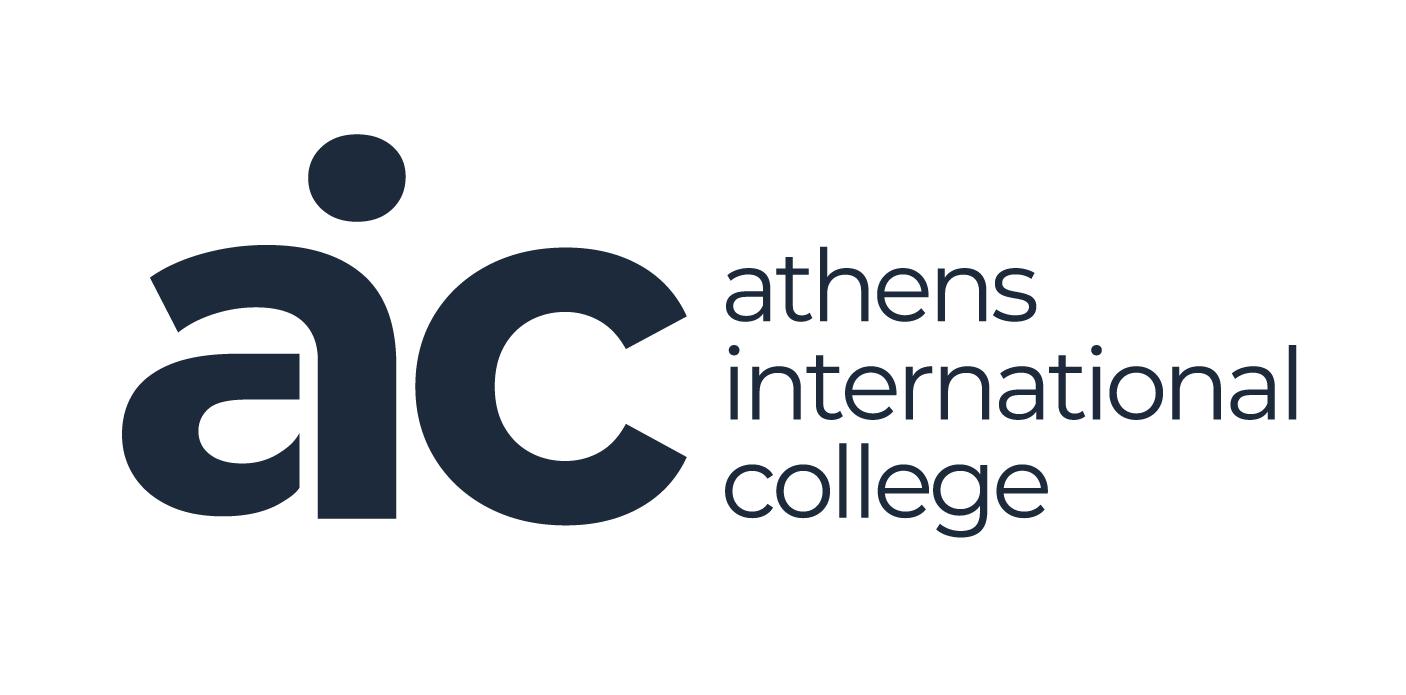The MBA in Banking and Finance is a postgraduate program specifically designed for professionals who are already working and aim to enhance their academic foundation, professional, managerial, and leadership skills within the financial sector.
Particular emphasis is placed on developing students’ leadership and strategic capabilities, while fostering an interdisciplinary knowledge base and skill set that ensures flexibility and the ability to adapt rapidly to developments in science, technology, and the business environment. At the same time, students connect their learning from the program with the professional needs of their careers and with those of the organization or company in which they are employed.
By attending the MBA in Banking and Finance, students gain multiple benefits, including:
Specialization in Modern Banking and Financial Practices
Students acquire knowledge in areas such as corporate finance, risk management, financial analysis, and investments — essential for roles in banks, investment firms, and institutional organizations.
Enhanced Employability in the Banking and Financial Sector
The MBA opens the path to careers in Greek and international banks, insurance companies, financial consulting firms, and regulatory organizations.
Understanding of Regulatory Frameworks and European Banking Supervision
Students are trained in the requirements of the ECB, Bank of Greece, and other institutions, gaining practical tools for regulatory compliance and governance.
Development of Analytical and Strategic Thinking
Through financial modeling and case studies, students cultivate the ability to make data-driven decisions and forecasts.
Access to a Broad Professional Network
Participants connect with industry professionals, alumni, investors, and banking institutions — facilitating career advancement or transition.
The course aims to determine the value of information systems in business strategy, the importance of organizing IT departments as IT service providers, and the evaluation of modern integrated information systems.
The course aims to emphasize the importance of Human Resources as a key factor in creating competitive advantage. Within this framework, contemporary perspectives, strategies, and policies are analyzed to achieve this goal in a demanding business environment.
The course emphasizes accounting information, the analysis of financial statements, and the study of topics such as costing, pricing, leverage, investment strategy, business performance, auditing, and credit policy.
The course presents the fundamental theoretical principles, criteria, and quantitative/qualitative methods supporting the modern decision-making process in matters related to product manufacturing and service operations, aiming to enhance the efficiency and/or effectiveness of the business.
This course focuses on presenting the complete theoretical framework of Marketing Management, as well as the theoretical models and implementation tools.
Particular emphasis is placed on enabling students to apply and implement these concepts through the development of a Marketing Plan brief, addressing the marketing parameters of both the internal and external environment of a business or organisationa.
The course emphasizes the analysis of key macroeconomic variables (unemployment, inflation, interest rates, GDP, balance of payments, monetary and fiscal policy) and examines how changes in these variables affect a country’s investment strategy and developmental dynamics.
The course completes the first-year MBA curriculum, emphasizing environmental variables, the development of alternative strategies, their evaluation, and strategic-level decision-making by businesses.
The course explores strategy as a field of debate and emphasizes the need to understand cultural, social, ethical, and economic factors that shape strategy development within organizations. It trains students to engage more comprehensively in discussions about the strategy of their own and other organizations.
The course offers a critical study of the tools, models, and concepts for implementing sustainability strategies and policies in businesses and organizations. It reviews current and emerging ideas within the context of factors driving organizational changes necessary to respond to urgent sustainability and responsibility challenges.
Furthermore, the course investigates practices, innovations, and emerging approaches for integrating sustainability into business strategy and emphasizes the development of key competencies through Knowledge Management and Learning Organization theories.
This course focuses on the development of individual leadership skills, with particular emphasis on maximizing creativity at the individual, team, and organizational levels. Various contemporary leadership theories are examined, including transformational leadership, which is illustrated with examples and complemented by practical exercises.
Beyond theoretical foundations, significant emphasis is placed on personal development. Students assess their own leadership style using established measurements and, based on relevant theory, design an action plan that will guide their professional growth. The coursework requires the application of theory and critical analysis, contributing to the development of leadership competencies and personal leadership style.
The course is designed to provide participants with the opportunity to explore both the theory and practice of corporate financial strategy and its relationship with overall corporate strategy. Where possible, industry professionals lead one or more sessions, offering participants the chance to learn directly from practitioners how detailed frameworks and models are applied in real-world financial strategy and decision-making processes.
The course covers the international banking market, international transactions, and capital markets. It examines exchange rates, including fixed and floating systems, the European Exchange Rate Mechanism, and the Economic and Monetary Union (EMU) with the Euro. Students study the balance of international trade, financial and capital management of multinational corporations, and international investment activities. The course also addresses the design of international financial strategies, corporate taxation, tax regulations for multinational enterprises, tax incentives for international trade, and the role of tax havens in multinational business operations.
The course focuses on the role of money within financial institutions, banking legislation, the operations of commercial banks, the processes of money demand and supply, the implementation of monetary policy, and the international role of money and interest rates.
The course provides a critical overview of business ethics, corporate social responsibility, and stakeholder management concepts, enabling students to analyze, evaluate, and shape business decisions in accordance with ethical and social considerations. Special emphasis is placed on current corporate practices and recent regulatory developments, ensuring that students gain a contemporary, up-to-date understanding of this rapidly evolving field.
The course also addresses the ongoing discourse regarding the role of business organizations as future generators of “sustainable value” for both the enterprise and society at large. It further examines operational frameworks through topics such as accounting standards, corporate governance, green marketing, social entrepreneurship, employee well-being, sustainable innovation, and global supply chain management.
This course introduces students to the study of human behavior in the workplace through the design of research projects, data collection and analysis, and the presentation of findings. It focuses on developing the knowledge and skills necessary for the successful completion of an independent research project.
The dissertation provides students with the opportunity to specialize in a chosen area of interest by conducting an independent, in-depth research project under the guidance of faculty actively engaged in research. Students are expected to evaluate and synthesize different research approaches, utilize secondary and/or primary sources, and analyze their findings in relation to existing theories. The dissertation serves as a strong demonstration of critical thinking, research capability, and business knowledge, all highly valued by prospective employers. It can also act as a foundation for further research, whether in a consulting context or through advanced academic study at the PhD level.
At Athens International College, we recognize that today’s manager must lead with vision, act with agility, and stay ahead in a rapidly changing environment. That is why we designed the AIC Upskilling Track — a dynamic learning experience that complements your studies with strategic, high-value executive seminars, providing access to practical, business-relevant knowledge across a range of critical areas. Each seminar is carefully crafted to bridge the gap between academic knowledge and management practice, ensuring that upon graduation, in addition to a strong academic degree, you will also have an enhanced executive toolkit.
All students are entitled to attend 2 seminars per year for free, and receive 50% off all Artificial Intelligence seminars.
For example, students of the MBA in Banking and Finance can attend:
- AI + Executive
- Coaching Skills
- High-Impact Business Presentations
- Sustainability, ESG & Purpose-Driven Business
Admission Requirements for Postgraduate Programs
- Bachelor’s degree from a Higher Education Institution (Technological Educational Institute or University) or equivalent professional qualifications
- Relevant professional experience
Applicants must complete an Application Form, which is evaluated on a case-by-case basis.
A satisfactory level of English proficiency is required to ensure comprehension of English-language texts.
Required Documents
- Copy of degree certificate or professional qualifications
- Four passport-sized color photos (3 × 4.5 cm)
- Copy of ID card
- Two reference letters
- Employment verification
- Curriculum Vitae (CV)
Attendance and Program Details
- Start Dates: October for the Fall semester or March for the Spring semester
- Duration: 1 year
- Class Schedule: Friday afternoons and Saturday mornings, every two weeks
- Language of Instruction: Courses and assessments (exams and assignments) are conducted in Greek
- Degree Awarded: The degree is awarded by the University of Winchester, U.K.
By enrolling at Athens International College, students are simultaneously registered at the University of Winchester, which also issues the corresponding student ID.












